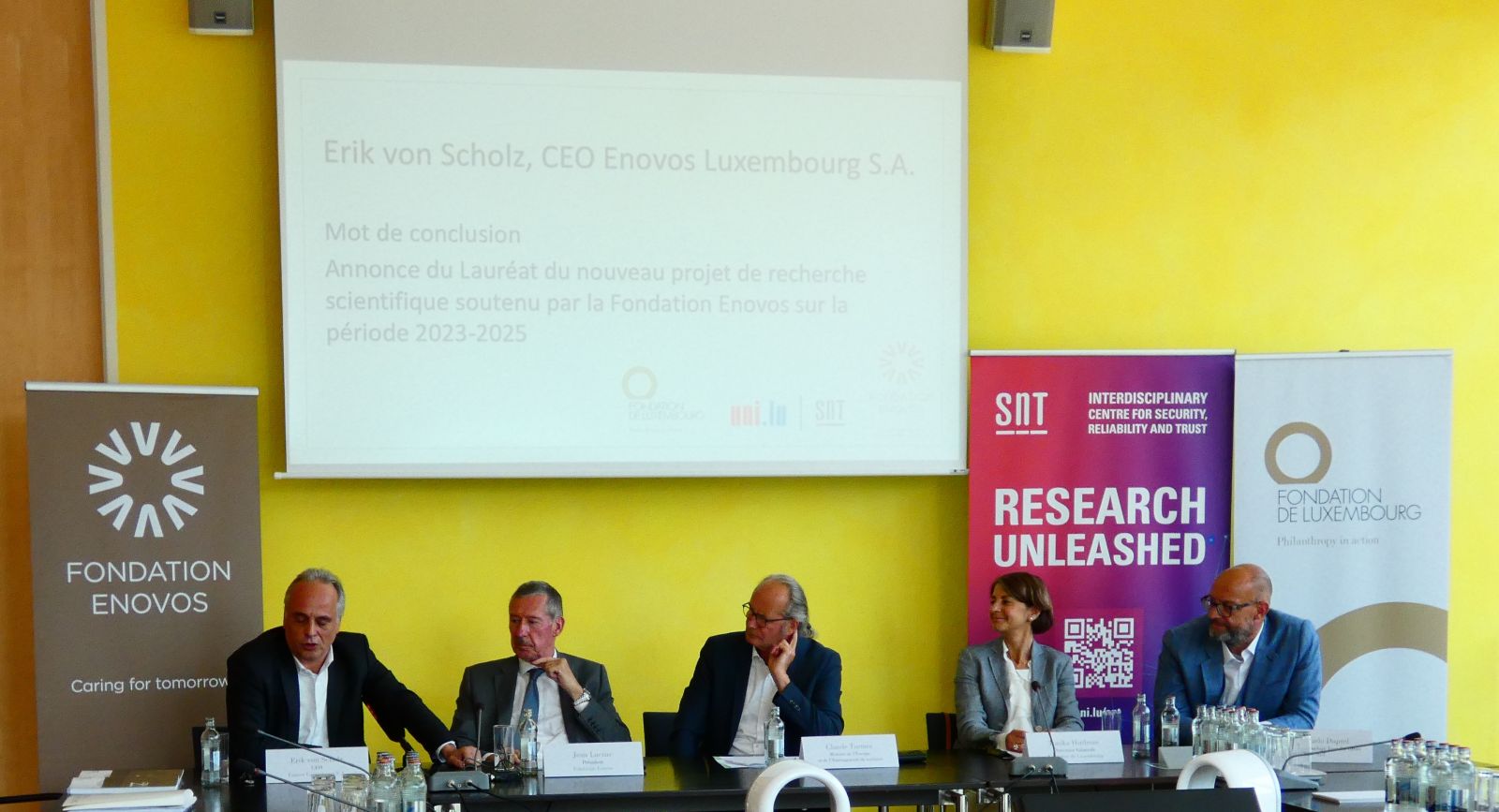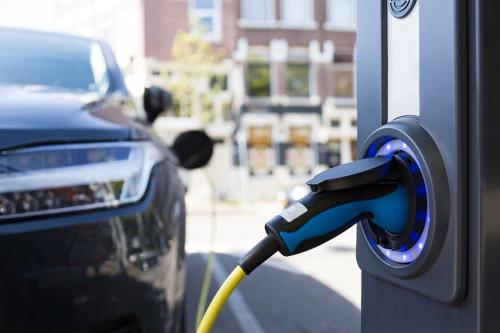-
About Us
-
Donors
-
Foundations & Projects
-
Beneficiaries
-
News
News
News
Biodiversity & Climate Change
Press Release: Optimising Electric Vehicle Charging for the Benefit of Users and the Energy Transition
News
Biodiversity & Climate Change
The decarbonisation of mobility is a cornerstone of a sustainable energy transition.
In this context, the Enovos Foundation, under the aegis of the Fondation de Luxembourg, has supported the INDUCTIVE research project by the Interdisciplinary Centre for Security, Reliability and Trust (SnT) at the University of Luxembourg.
Its aim: to leverage the flexibility of electric vehicle charging in order to optimise electricity demand, particularly by charging vehicles during periods of high supply – especially when renewable energy is widely available – on electricity markets.

From left: Erik von Scholz, Jean Lucius, Minister Claude Turmes, Tonika Hirdman, and Dr. Carlo Duprel
On July 12, the Enovos Foundation presented the results of the INDUCTIVE project at the Fondation de Luxembourg premises. Launched in 2021 and led by the Interdisciplinary Centre for Security, Reliability and Trust (SnT) of the University of Luxembourg, the project addresses a key challenge: if Luxembourg is to reach its goal of having 49% of registered vehicles be electric by 2030, the energy grid must be capable of meeting this demand—while relying on renewable energy sources, which can be unpredictable and fluctuating.
The INDUCTIVE project tackled this challenge by developing technological solutions to optimise electric vehicle (EV) charging, taking into account the needs of users, energy suppliers, and grid operators (e.g., for better managing power consumption patterns during EV charging). "While most drivers charge their EVs in the evening, some would agree to charge during the day or night, or only partially charge the battery. This flexibility could reduce the overall load on the energy system and allow suppliers and grid operators to better balance purchased electricity," explains Dr. Maxime Cordy, a researcher at the University of Luxembourg’s SnT.
Over two years, the INDUCTIVE research team explored three key areas to better understand the different scenarios drivers and suppliers may face during charging:
- Assessing the potential for renewable energy optimisation by a supplier leveraging coordinated EV charging flexibility,
- Testing a system of incentives for drivers willing to adjust their charging times based on market supply and demand,
- Developing a pilot decision-making system to program EV fleet charging duration, thereby optimising benefits for all stakeholders—suppliers, grid operators, and drivers.
The project’s results led to a better understanding of consumer motivations, charging schedules, and flexible behaviours—helping to anticipate and respond to electricity demand. Among other outcomes, a decision simulation platform was developed to demonstrate how users could set preferences, and how this data could be integrated into a mobile interface for smart charging services.
Overall, the findings pave the way for potential innovations in the energy market, particularly in decision-making mechanisms that regulate EV charging frequency and speed. As Minister Claude Turmes highlighted, “Luxembourg is a global leader in electromobility. Combining and optimising the use of renewable energy in electric vehicle charging, as achieved by the INDUCTIVE project, is a true asset for accelerating the phase-out of fossil fuels.” With the number of EVs in Luxembourg’s national fleet increasing, the project’s conclusions point toward a future where EV charging is fully optimised and automated—from the driver to the supplier.
The press conference was attended by Claude Turmes, Minister for Energy and Minister for Spatial Planning, Erik von Scholz, CEO of Enovos Luxembourg S.A., Jean Lucius, President of the Enovos Foundation, Dr. Carlo Duprel, Head of the SnT Technology Transfer Office, Dr. Maxime Cordy, INDUCTIVE project lead at SnT, and Tonika Hirdman, Director General of the Fondation de Luxembourg.



